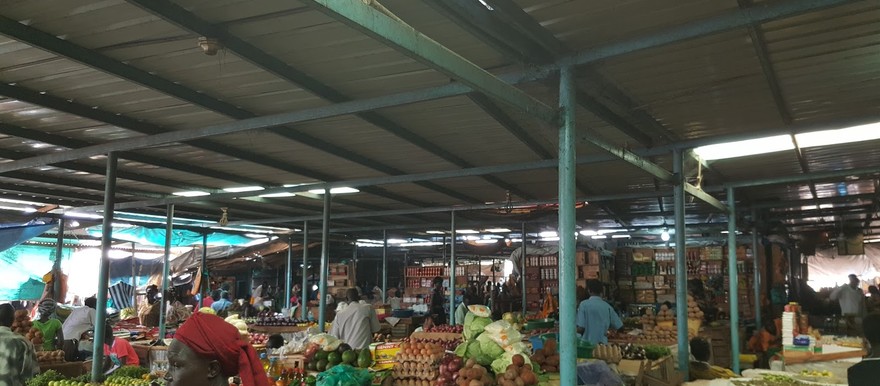Traders in the Juba are treating the gains made by the South Sudanese Pound (SSP) against the US Dollar with cautious circumspection and say they are skeptical that the local currency will remain stable because prices of commodities in the market have not fallen.
Early last week, the SSP gained against the USD as a result of the Central Bank injecting USD 5 million into the market by auctioning the hard currency to commercial banks and forex exchange bureaus.
David Onyango, a black market forex trader in Juba told Radio Tamazuj that his business had lost its profitability because the Bank of South Sudan had flooded the market with US dollars.
“We are buying dollars from commercial banks, not any other places. We are making little profit after selling because we are buying dollars using pounds at 46,000 SSP for 100 $ and selling it at 46,500 SSP. We only have the difference of 500 SSP as our profits,” Onyango lamented.
Susan Kaku, who sells maize flour, said that the SSP gaining against the US Dollar while commodity prices remained high made no sense.
“That the dollar is reducing while the prices of goods continue to rise high, has got no meaning. For us who are working, we need to get at least some small profit,” Kaku said. “When you’re working and you don’t get any profit that means you’re doing nothing and how will your children survive? Let the government help us and look into this issue.”
Another trader in Jebel Market, Mulhima Joseph, said commodities are very expensive even though the cost of buying the US Dollar has reduced and called on the government to implement the peace agreement so that the country can develop.
“What we want from the government is let them give us peace. It is because of lack of peace that we are suffering. For us who are old, we have no energy, we eat once in the day, what shall we do? If they had brought for us peace, we would go to the farm and we would cultivate,” Mulhima said.
According to the chairman of the Central Equatoria State Chamber of Commerce, Robert Pitia, “There is no guarantee that the dollar will come down. The traders now want to recover their money back because they bought the goods when commodities were still very expensive, so the traders want to recover their money back.”
However, an economic analyst, Dr. Abraham Maliet Mamer, advised the government to strengthen the taxation system adding that it should be in a position to know the origin of goods and their prices at the source.
“The only way we can get to the bottom of this is to strengthen our taxation system. If the merchants are selling those goods at this price, then we should know the price from the origin,” Dr. Maliet advised. “If we know the price from the origin, then we will be able to know how much tax they will pay. You know people are making a double profit, if you buy something at 1 dollar, you sell it 2 or 3 dollars here.”
He advised that the government should install a tracking system from the point where the goods are coming from.
“So, when they come to the market, we will be able to know that this merchant brought these goods worth this much money. So the margin of profit must be 20-30 percent. When they are paying tax, we go in and ask, you sold this for this much so you need to pay this tax,” Dr. Maliet said.




